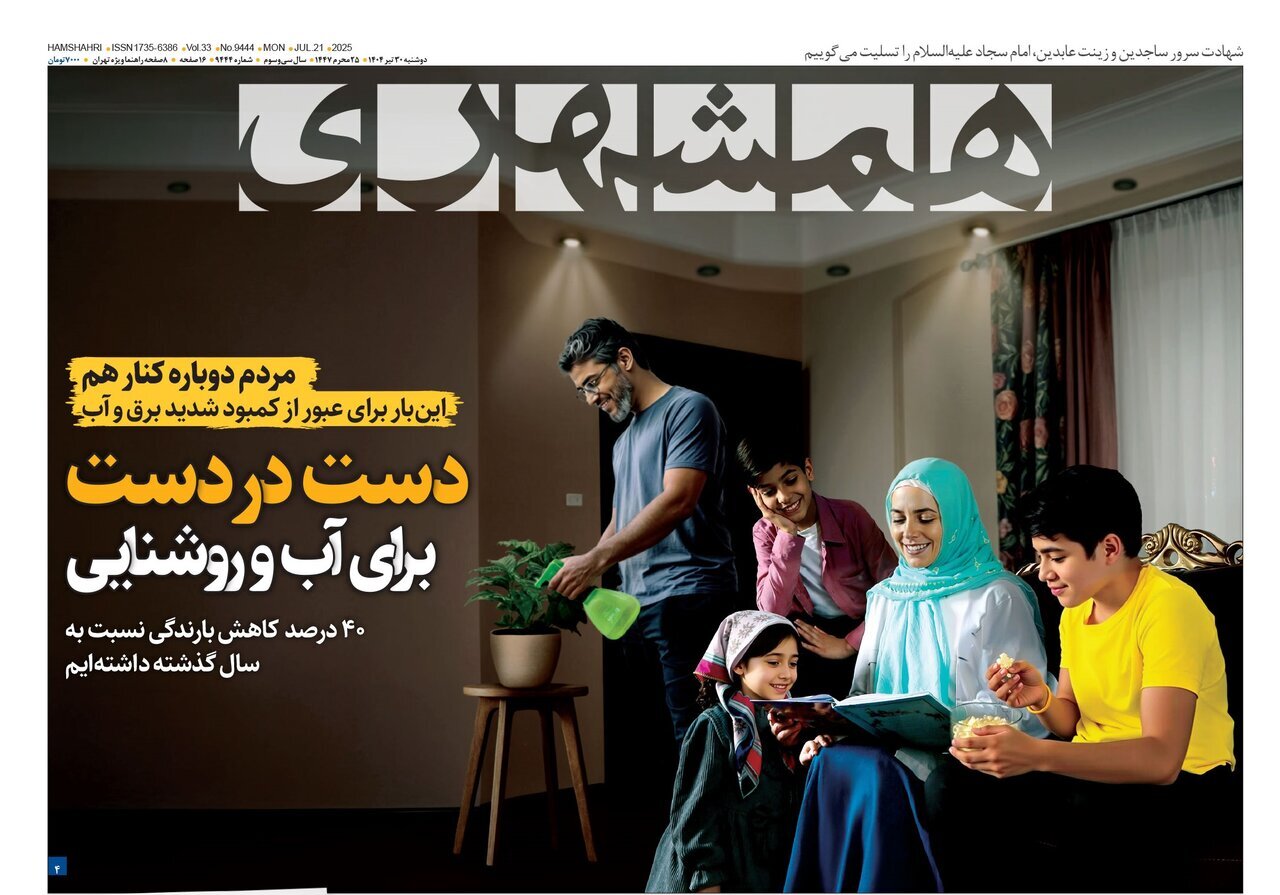Had Iran not taken precautionary measures, a disaster would have occurred

TEHRAN - Hamshahri conducted an interview with former diplomat Ali Bahadori Jahromi about the dangerous and direct involvement of the United States in Israel's 12-day war with Iran.
He said: The direct military action of the U.S., which claims it supports world peace, is a direct attack on the foundations of the existing international order. The U.S. military aggression against Iran's peaceful nuclear facilities could have resulted in a dangerous crime against all humanity, if the Islamic Republic government had not taken appropriate precautions to protect enriched uranium and other security measures related to its nuclear sites. After that, Trump officially announced that this war was a joint project between him and Netanyahu. In response, Iran launched a counterattack, invoking its right to self-defense under Article 51 of the United Nations Charter. However, rather than acknowledging this legal framework, the Western bloc chose to cooperate with Israel in intercepting Iranian missiles aimed at the invading regime. This action runs contrary to key principles of international law and appears to undermine the very spirit of the United Nations Charter, which was established to prevent "power-seeking and warmongering under the mask of peace and law."
Sazandegi: Europe is making snapback threats as it feels sidelined
In a commentary, Sazandegi addressed the German foreign minister’s statements on the snapback mechanism and the continuation of the diplomatic process with Iran. It wrote: The German foreign minister said that following our negotiations, we had contact with Araghchi and at agreed that we wanted to continue the diplomatic process. Over the past days and weeks, the statements of the European troika foreign ministers have hardened their position over the past days and weeks, and put the snapback mechanism on their table as a pressure tool against Tehran. The important point is that they view the negotiations as only between Tehran and Washington and that they are being sidelined. Therefore, it can be seen that despite trying to present themselves as influential and effective actors in any future negotiations, they are still subordinate to the United States and are trying to use the leverage of the snapback mechanism as a threat or pressure tool. They now seek to accelerate the negotiations process and quickly push Iran toward the negotiating table.
Sobh-e-No: A mechanism that has already been activated
In an analysis, Sobh-e-No argued that Iran’s current circumstances effectively mirror the activation of the snapback mechanism, given that the P5+1 countries have not honored their commitments under the JCPOA and the United States withdrew from the agreement in May 2018. The imposition of UN sanctions serves only to damage the credibility of Western powers. Consequently, any meaningful dialogue regarding Iran's nuclear program should focus on extending the snapback deadline. Iran, having faced betrayal amid the negotiation and attacks on its nuclear facilities, now approaches the issue with a markedly different perspective. Should Europe activate the snapback mechanism, Iran’s most strategic response may lie in embracing “nuclear ambiguity.” Having endured concurrent confrontations with both the United States and Israel—as well as the full weight of so-called “crippling” U.S. sanctions—Iran can no longer be coerced into retreat or surrender under threats of sanctions or warfare. In effect, the snapback mechanism is already in motion, and Iran has moved beyond the phase of being intimidated by force.
Shargh: Regional and economic fallout of Iran’s possible NPT pullout
One of the less studied aspects is the impact of Iran’s possible withdrawal from the NPT on regional and economic dynamics. In the Middle East, this action could lead to a nuclear arms race, especially if countries like Saudi Arabia or Turkey decide to develop nuclear programs. This scenario could severely undermine regional stability and lead to increased geopolitical tensions. From an economic point of view, withdrawal from the NPT and the return of sanctions under Chapter 7 (of the UN Security Council) could put further pressure on the Iranian economy and make it more fragile. Overall, it should be said that Iran’s withdrawal from the NPT is a decision that would have far-reaching consequences that could strengthen or isolate Iran’s position as an independent actor. The success of this strategy depends on Iran’s ability to manage international pressure, maintain the support of its eastern allies, and avoid military conflict. This move could lead to a redefinition of Iran’s role in the international system. However, without careful study, this decision could lead to an escalation of regional and global crises.
Leave a Comment